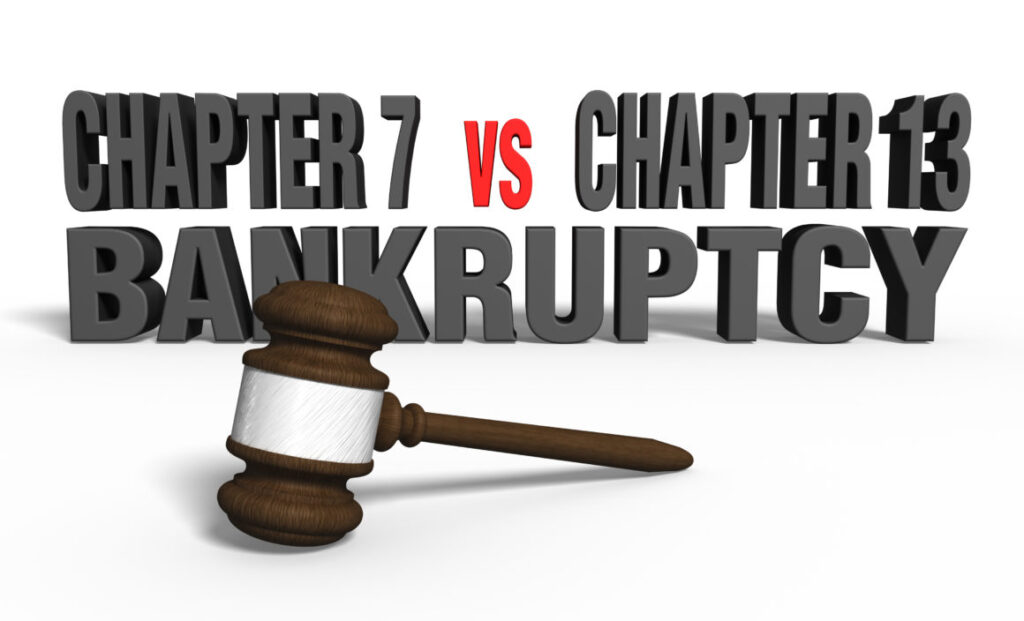Though a downward trend in foreclosures in 2017 has been positive news for many American homeowners, a significant number still struggle to make mortgage payments on homes in which they have little or no equity. According to real estate intelligence firm
RealtyTrac, foreclosure rates remain well above pre-2008 levels.
While mortgage servicers have legally-imposed obligations to resolve delinquencies without foreclosing, it may be that you have been denied a loan modification or other relief and are considering filing personal bankruptcy as an alternative.
Each situation is unique, and only an experienced bankruptcy and foreclosure defense attorney can properly advise a struggling homeowner whether bankruptcy is advisable. Here, however, are some general points to consider.
Chapter 7 vs. Chapter 13
The choice between a Chapter 7 “liquidation” bankruptcy and a Chapter 13 repayment plan is no longer the debtor’s alone. Individuals wishing to file a Chapter 7 petition must demonstrate that they lack the financial ability to repay any meaningful portion of their debts. This is determined through a so-called “means test” using the debtor’s income.
Many homeowners with employment or other regular income who in the past could have opted for a Chapter 7 filing are likely to discover that they can no longer do so. They must instead file a so-called “wage earner” partial repayment plan under Chapter 13.
That isn’t necessarily bad news, particularly for homeowners who have equity and wish to remain in their residences. In a Chapter 13 bankruptcy plan, the debtor generally continues to make full mortgage payments and partial payments to unsecured creditors, such as credit card companies. Those who successfully complete the plan (which can last from three to five years) will be relieved of non-mortgage debt, allowing them to better afford their home mortgage payment.
For those homeowners who are eligible, however, a Chapter 7 case can provide some benefits not available in a Chapter 13 case:
– Allow Accumulation of Savings. A Chapter 7 filing legally stops the foreclosure process. The lender can foreclose, but only by either waiting until the end of the case or by applying to the court for permission. In many states, even after the foreclosure is allowed to proceed, required waiting periods and backlogs in court dockets may mean that a homeowner is able to remain in the family home for months or even years. During that time, he will not be obliged to make any mortgage or rent payments.
– Discharging Personal Liability for the Mortgage Debt. Unlike a Chapter 13 case, the debtor’s personal liability for the balance of the mortgage debt is legally eliminated.
– Eliminating Possible Tax Liability. When a mortgage lender agrees to forgive a portion of a loan in connection with a modification, the amount forgiven may be considered income by the IRS for federal tax purposes. That is not the case if the debt is entirely eliminated in bankruptcy, however.
Drawbacks of Chapter 13
While filing under Chapter 7 is no longer an option for debtors who cannot satisfy the “means test”, those who are an eligible debtor may still choose to file under Chapter 13. This may be a good decision for debtor homeowners with equity in their homes.
However, while the Bankruptcy Code allows a Chapter 13 debtor to keep his or her home, it also requires adherence to a fairly Spartan household budget, a difficult task for even the most committed family.
It is therefore probably not surprising to learn that more than half (and perhaps as many as 75 percent) of all Chapter 13 cases are never completed. Once a Chapter 13 case is dismissed, a mortgage lender can resume foreclosure. At this point, a debtor who satisfies the means test may be permitted to convert his case into a Chapter 7 proceeding.
